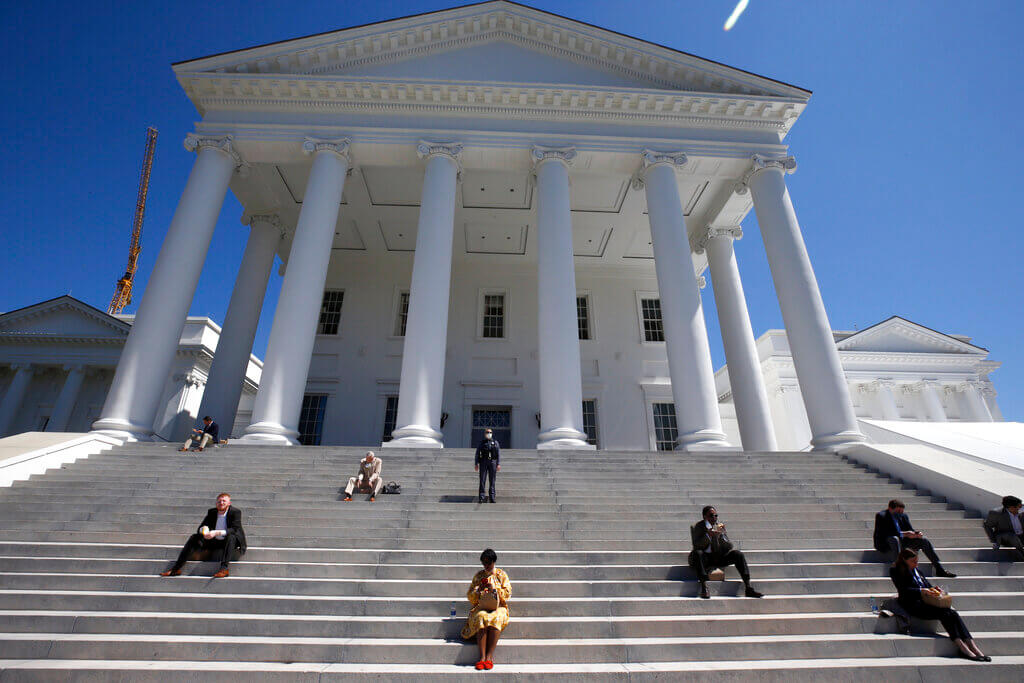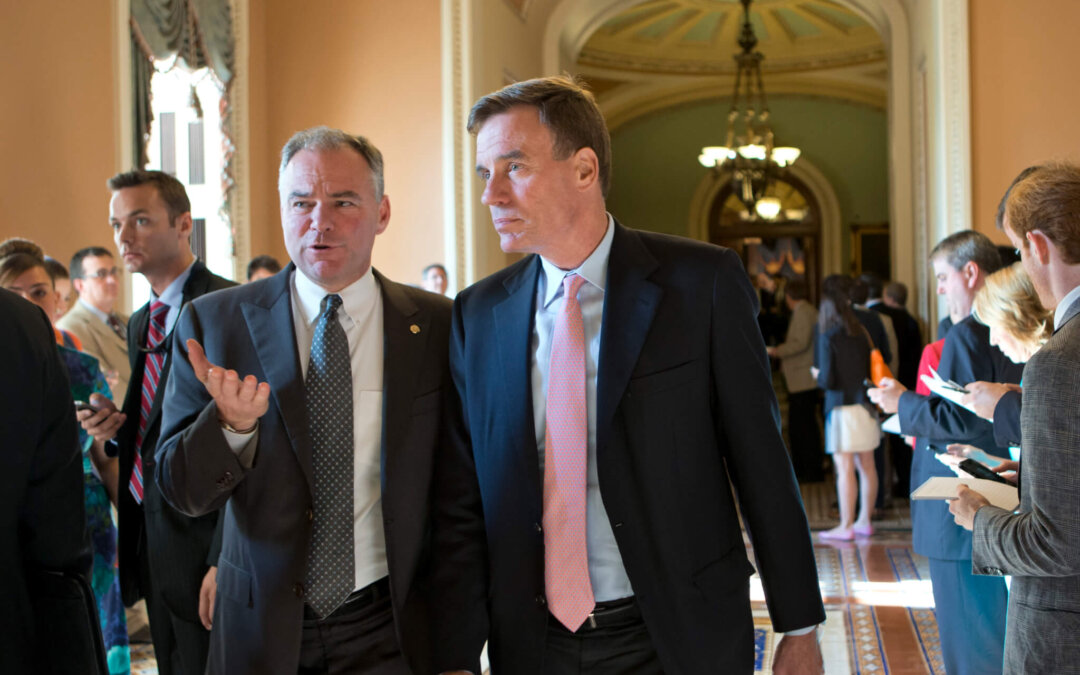
Members of the Virginia General Assembly are already preparing for the regular session in January.
RICHMOND-We got a glimpse this week into priorities the Virginia General Assembly have for the upcoming session. During the Joint Legislative Audit and Review Commission meeting Monday, the group agreed to focus on studies for housing, transportation, employment, guardianship, and juvenile justice.
Housing makes the list
Virginia has a housing crisis. From June 22 through October, courts heard a total of 32,000 eviction cases. Out of that number, 8,000 people lost their home.
The General Assembly put several protections in place during this fall’s special session. HB5064 or the Virginia Residential Landlord and Tenant Act, says after landlords give a warning, tenants have 14 days to reach a payment plan. During that two week period, landlords cannot try to evict the tenant.
Without further action to promote housing stability, Virginia could see evictions continue to grow, according to Eviction Lab, a nationwide database of evictions by Princeton University.
Even before the COVID-19 virus pandemic crippled the Commonwealth’s economy and sent its unemployment rate soaring, Virginia already set records for the number of evictions per day.
In 2016, the eviction rate in Virginia was 5.2%, or 141.59 evictions everyday. Richmond is ranked the second highest in the nation for number of evictions per capita, according to the Eviction Lab.
Eviction filings in Richmond have fallen sharply since mid-March when Virginia Governor Ralph Northam established a temporary moratorium on evictions. This moratorium expired in September, on the same day the CDC’s ban on evictions began.
Time to review housing needs
On Monday, committee members approved review of the Commonwealth’s housing needs and the role of state and local governments in addressing them. The group members stressed the time sensitivity of the study.
“It’s becoming a bigger issue almost daily,” said JLARC Study Topic Selection Subcommittee Chairman Del. Mark Sickles.
The review will compare the demand for affordable housing in the Commonwealth with supply, and study the impact of lack of housing options on high rent, especially for minority communities.
It also will review what factors limit the supply of housing, and the importance of housing availability to state and local revenues. The effectiveness of existing programs to address housing needs and the effectiveness of coordination between state and local programs will also be part of the review.
Does Virginia need better roads?
Members of the subcommittee also agreed to prioritize a study of the Commonwealth’s transportation infrastructure, funding, and preparedness for change.
The U.S.’s highway system is deteriorating , according to the Annual Highway Report by nonpartisan public policy nonprofit the Reason Foundation. However, Virginia’s roadways were ranked second highest in the nation in 2019. This represented a significant improvement in the Commonwealth’s ranking, which a year earlier ranked 27th in the U.S.
The study will examine the Commonwealth’s current state of infrastructure, its transportation funding sources, and changes in commuting patterns that have been observed due to the COVID-19 virus pandemic.
Challenges related to the increased activity on Interstate 81, Interstate 95, and by the Port of Virginia will also be considered in the study.
“The idea with this one is to take a step back and look at, particularly given the way the pandemic has affected transportation revenues,” said JLARC Senior Associate Director Justin Brown.
Looking to the future, the study also includes a review of the Commonwealth’s preparedness for changes within the transportation landscape that result from advances in technology.
“My intention here is to try to get our Department of Transportation out in front of this issue as more and more other vehicle systems come online. Electric, propane, others that are not paying highway-use taxes. And we’re using rail more and mass transit more,” said Del. Terry Austin. “I just hope we can plan for the future and put something in place, a funding stream, where we can continue to improve our roads and infrastructures.”
Highway-use taxes in Virginia are calculated using the fuels tax rate at the time the vehicle was registered and the average number of miles traveled. It does not currently apply to fuel efficient vehicles, mopeds, or motorcycles. Electric vehicles are required to pay a fixed fee of $88.20.
Is the employment commission meeting needs?
In September the unemployment rate in Virginia rose slightly to 6.2%, that’s 3.5% above the Commonwealth’s rate a year earlier.
Like the rest of the country, the number of people who applied for unemployment benefits in Virginia spiked in April. Since then, unemployment is slowly but unsteadily making progress towards recovery.
Due to this sudden increase in unemployment benefit requests, the Virginia Employment Commission (VEC) is experiencing a backlog of unemployment claims.
“There’s been a lot of citizen frustration with the inability to navigate the VEC’s unemployment benefits claims process. It does seem like VEC has struggled quite a bit with some of its information technology systems in terms of their modernizations, in terms of the delays there,” said Brown.
A review of the operation of the Virginia Employment Commission, including the impact of COVID-19 on its operations, was also labeled a priority by the subcommittee.
This review will also consider the commission’s IT system needs, available funding options during the pandemic, and opportunities to improve customer service.
The study will also examine the efficiency and fairness of the unemployment insurance appeals process, a how well the commission connects Virginians to meaningful employment opportunities.
At the request of Sen. Jeremy McPike, a portion of the study will also be dedicated to comparing Virginia’s unemployment program with other states.
Currently, the maximum weekly unemployment benefit that someone can receive in Virginia is $378. The minimum is $60.
Two studies approved by the commission did not relate to the impact of the pandemic, but would have an effect on some of the more vulnerable populations in Virginia.
A look at juvenile justice
Members of the subcommittee also agreed to advance a review of Virginia’s juvenile justice system. That would examine the racial and regional disparities in the treatment of youth in the justice system. It would also study disparities in treatment for people with cognitive or behavioral health disabilities.
The study will also analyze whether juvenile justice facilities are adequately staffed. It will also study whether staff are adequately trained. Reforms to the Department of Juvenile Justice will be examined for improvements on rearrest, recidivism, and educational outcomes.
“The system itself has on any given day about 400,000 youths in it. Most of them are on the verge of probation or parole, about 90% of them. The rest are in some type of facility,” Brown said.
At the request of Sen. Howell, an examination into the educational opportunities available to juvenile offenders will also be included in the review.
Studies pushed to 2021
Five studies related to educational opportunities within correctional facilities, gun violence, police departments, virtual education, and the impact of COVID-19 on local governments were not recommended for consideration by the full committee.
A study that would have reviewed the conduct and accountability practices of police departments was put on hold by the subcommittee. This study would have included their response to mental health crises.
Members agreed that newly enacted legislation such as the Marcus alert system would need time to be implemented before they can accurately be studied.
“There’ve been some significant reforms that have been enacted even during this special session,” said Brown. “This is to allow some time for some of these reforms to take hold and be implemented so we can give you all a sense of how those reforms are going.”
However, by 2021 the Marcus alert system will only have established five pilot locations across the Commonwealth.
Due to the pandemic, Virginia’s virtual learning and government operations are also in a period of transition. Therefore, members reasoned that they should also not be studied until the emergency concludes.
There was no discussion on the subcommittee’s decision to postpone a study on the impact of gun violence on the Commonwealth.
“We’re probably going to look at the rest of them next year. They’ll be on the list for next year anyway,” said Sickles.
The recommendations of the committee were reported to the full Joint Legislative Audit and Review Commission for review.
Meg Schiffres is Dogwood’s associate editor. You can reach her at [email protected].
Politics

Kaine, Warner urge federal agency cover IVF treatment for public workers
Virginia's two Senators were among a group of lawmakers defending access to in vitro fertilization, or IVF, which has entered the national spotlight...

Biden makes 4 million more workers eligible for overtime pay
The Biden administration announced a new rule Tuesday to expand overtime pay for around 4 million lower-paid salaried employees nationwide. The...
Local News

The zodiac signs of 12 iconic women offer insight into their historic accomplishments
Zodiac signs can tell you a lot about someone’s personality. Whether they’re an earth, water, air, or fire sign, these 12 categories (which are...

Virginia verses: Celebrating 5 poetic icons for National Poetry Month
There’s no shortage of great writers when it comes to our commonwealth. From the haunting verses of Edgar Allan Poe, who found solace in Richmond's...




